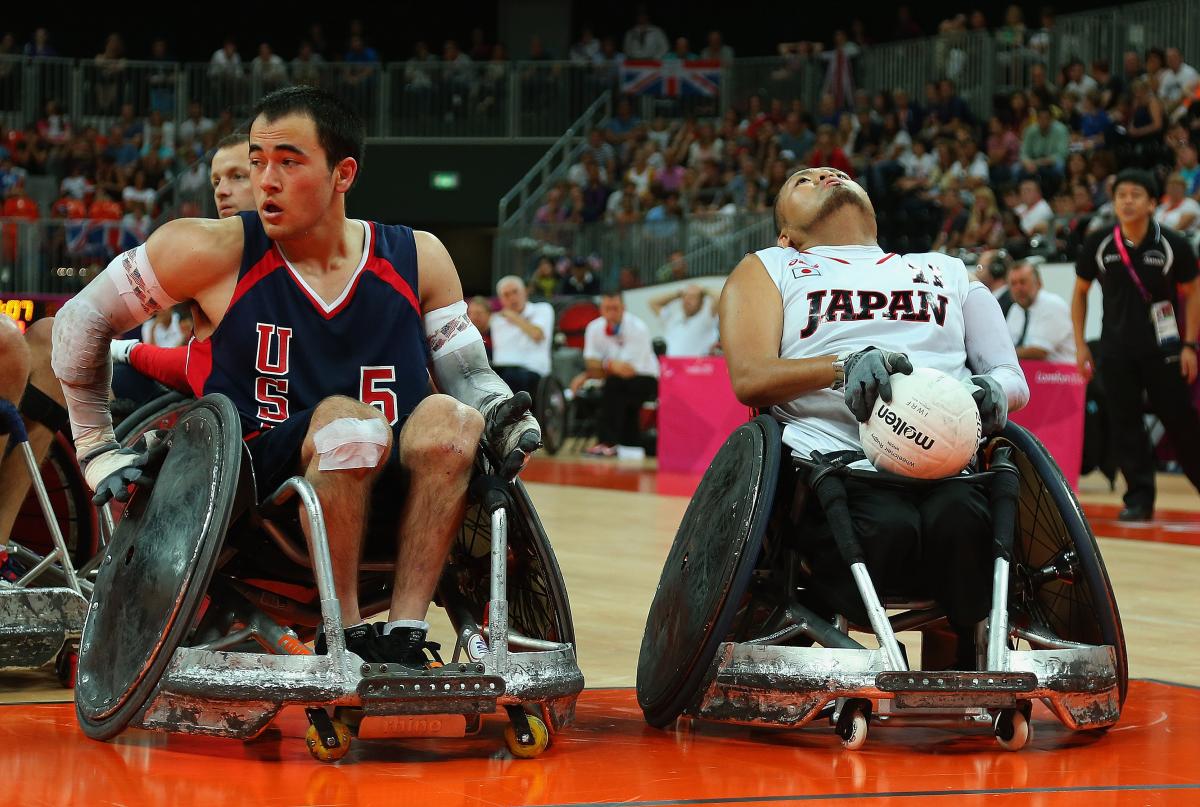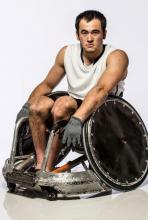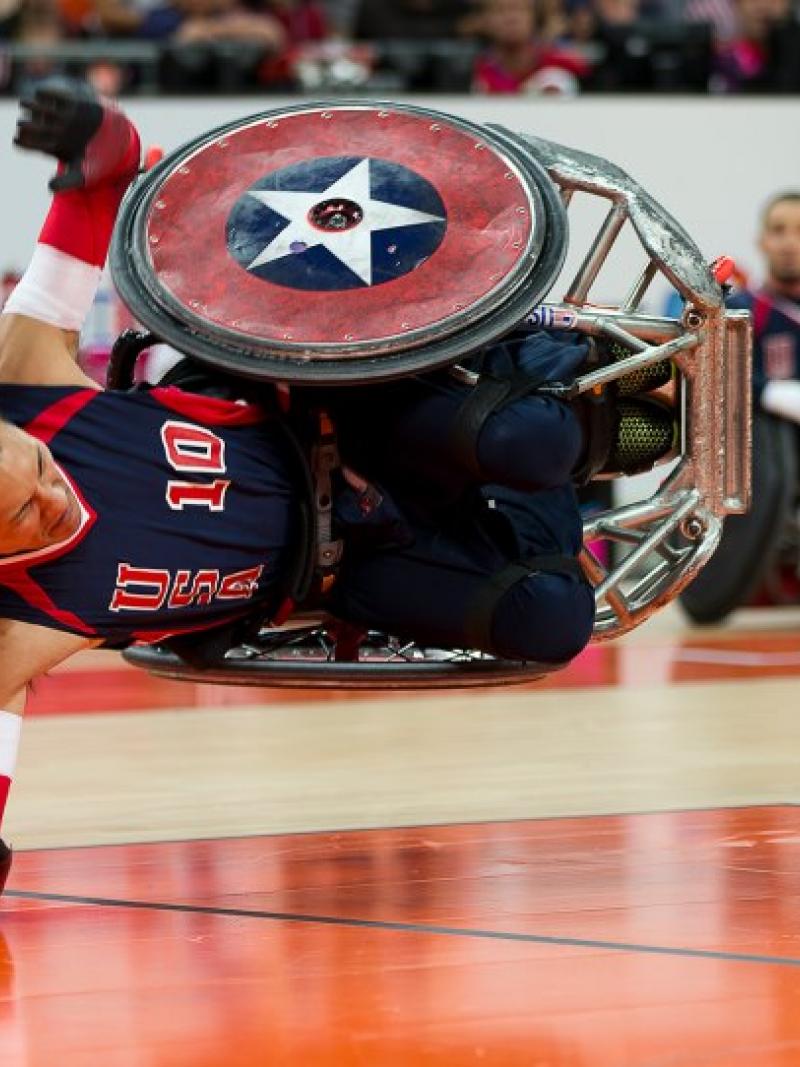Chuck Aoki: Does 'inspire' connote heroic or pitiable?
American wheelchair rugby player Chuck Aoki says it’s time for athletes to act upon the IPC’s core value of “inspiration.” 20 Jul 2013
Chuck Aoki
If we can inspire people to stay active in life, to learn more about disabled sport, and to see persons with disabilities as more than just their disability, I think that's a good thing.
“You're so inspiring ... You are amazing, I'm just really inspired by what you do ... I'm just so inspired by you.”
These are words we have all heard as Paralympic athletes, and most people in wheelchairs have as well.
And for most of my life, I have hated being called “inspiring.”
Being inspirational felt like it was something that should be reserved for children, or people in hopeless situations, who fight on regardless. I haven't considered myself to be in either of these categories, at least not since I've been above the age of 15.
As such, I always took offense to being told I was “inspirational” by anyone, because it felt like this inspiration came out of pity toward me. And no one wants to be pitied, least of all Paralympic athletes.
But as I get older, I start to think more about being “inspiring” to people, and I've started to wonder, is it really such a bad thing to be inspiring?
I didn't set out to be inspiring when I began playing wheelchair rugby. My goal was to become the best I could be at it, and I've done fairly well at that.
I've faced a lot of unique challenges to get to this point, but never given up, despite how easily I could have. All Paralympic athletes have. For that matter all people with an impairment who stay active have.
And while it might be a bit self-serving to say, there is something inspiring about that.
My point I am going for here, more or less, is that perhaps rather than shunning the label of inspirational, we should embrace it.
What's so bad about being inspirational?
If we can inspire people to stay active in life, to learn more about disabled sport, and to see persons with disabilities as more than just their disability, I think that's a good thing.
Olympic athletes always talk about inspiring the next generation of Olympians. Maybe we need to inspire our countries, to help find the next generation of Paralympians.
At least in the US, I know awareness of the Paralympics is relatively low. If I can inspire one person, who, for example, has a niece or nephew with a physical disability, and they get them involved in sports, is that not worth it?
We must be active as well, however, in continuing to move forward once we've inspired people.
It is not enough for someone to just say, “wow, that's amazing,” and then never think of it again. That is where the human piece comes into play. We must excite and encourage people who are inspired by us to come back again and again to our sport.
Turning inspiration into action is the new challenge we face.
And as with all other challenges disabled athletes face, I think we are more than up to it. So I ask all of you, how do we do that?
Thanks for reading, and as always, please feel free to comment and discuss this issue with me on Twitter or Facebook.

 Facebook
Facebook
 Instagram
Instagram
 Twitter
Twitter
 Youtube
Youtube
 TikTok
TikTok
 Newsletter Subscribe
Newsletter Subscribe



